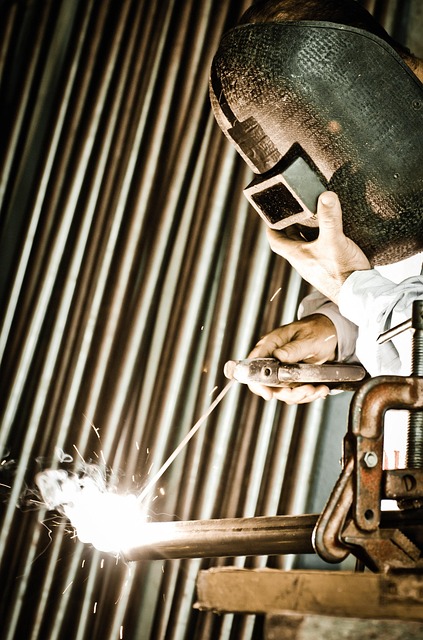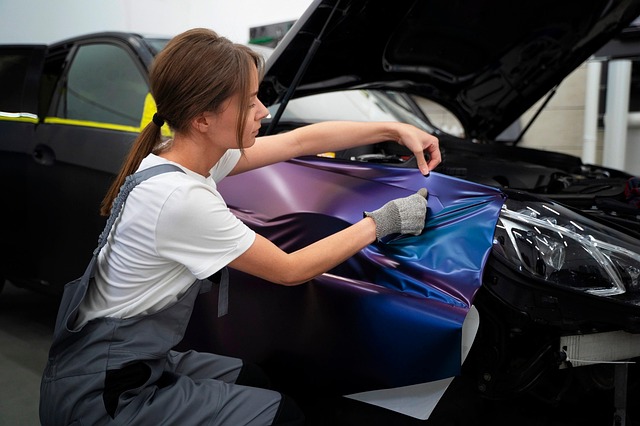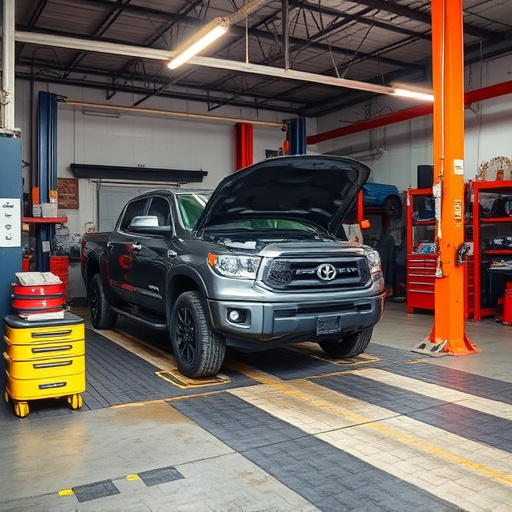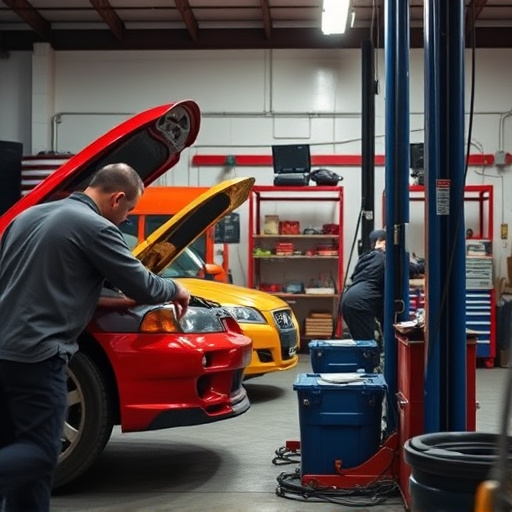In a competitive customer-focused auto repair market, meeting and exceeding client expectations through professional service, technical competence, and strong communication skills is key to success. Training staff on modern car technologies, active listening, empathy, and clear communication builds trust, strengthens relationships, and differentiates the shop from competitors. Fostering a customer-centric mindset that addresses both tangible and emotional aspects of car ownership enhances satisfaction and loyalty.
In today’s competitive market, a customer-focused auto repair business is not just about technical expertise; it’s about delivering exceptional service that leaves clients satisfied. This article delves into the essential training strategies for staff, focusing on understanding evolving customer expectations in auto repair. We explore effective communication techniques, fostering empathy, and honing problem-solving skills to create an environment where every interaction reflects a commitment to customer satisfaction, setting your business apart in the industry.
- Understanding Customer Expectations in Auto Repair
- Training Techniques for Effective Communication
- Fostering Empathy and Problem-Solving Skills
Understanding Customer Expectations in Auto Repair
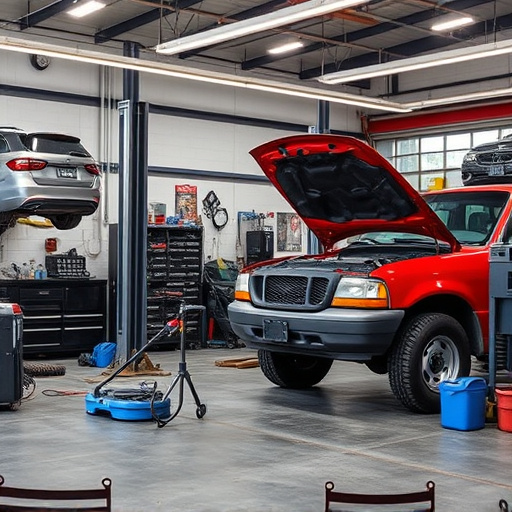
In the realm of customer-focused auto repair, understanding client expectations is paramount to delivering exceptional service. Today’s consumers are well-informed and have come to expect a level of professionalism and care that extends beyond traditional auto body repair services. They seek not just competent technicians but also friendly, knowledgeable staff who prioritize their satisfaction. This shift in customer expectations demands that staff members be adept at communicating effectively, understanding car bodywork intricacies, and providing transparent updates on repairs – from minor bumper repairs to more complex auto body restoration.
Training programs should equip employees with the skills to anticipate and exceed these expectations. This involves teaching them about modern car technologies, popular vehicle makes and models, and current trends in auto body repair. Equally important is fostering a customer service mindset that encourages active listening, empathy, and clear communication. By aligning their expertise with client desires, auto repair shops can foster trust and build lasting relationships, solidifying their reputation as leaders in customer-focused car care.
Training Techniques for Effective Communication
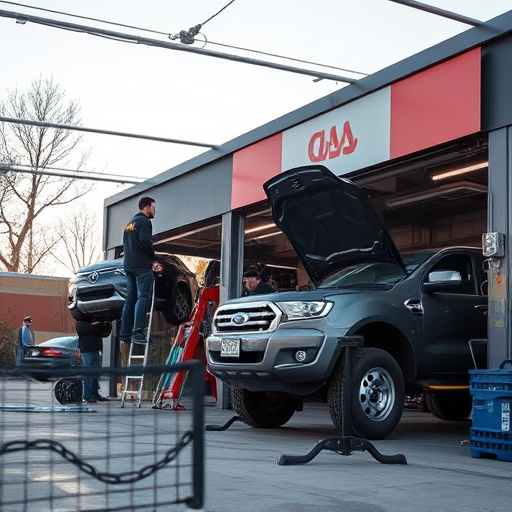
In a customer-focused auto repair environment, effective communication is key to building strong relationships and ensuring client satisfaction. Training staff to communicate clearly and professionally can significantly enhance the overall customer experience. Role-playing scenarios are an excellent training technique to prepare mechanics and receptionists for various customer interactions. These simulations allow employees to practice handling different situations, from addressing complaints about car dent repair to explaining complex car body restoration processes in simple terms. By encouraging active listening and empathetic responses, staff can turn potential issues into opportunities for building trust.
Additionally, providing clear guidelines and scripts for common customer interactions can streamline communication. This approach is especially beneficial when dealing with fleet repair services, where consistent messaging is crucial for maintaining business relationships. Through regular training sessions that emphasize active communication skills, your auto repair shop can foster a culture of exceptional customer service, setting it apart from competitors in the market.
Fostering Empathy and Problem-Solving Skills
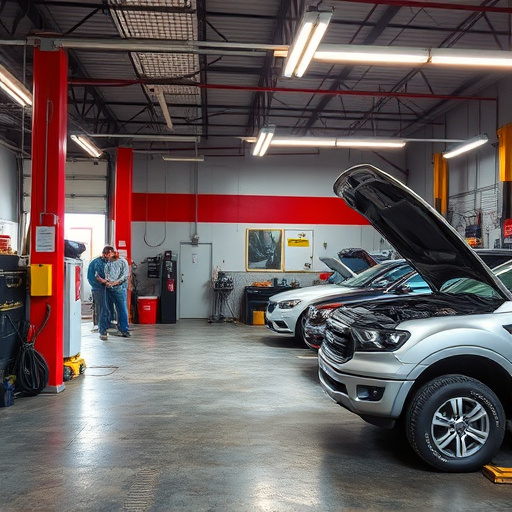
In a customer-focused auto repair environment, fostering empathy and robust problem-solving skills among staff is paramount. Mechanics and service advisors must understand that each customer brings their own unique set of challenges and expectations. Training should emphasize active listening, encouraging technicians to ask probing questions about clients’ concerns and preferences. For instance, when dealing with car damage repair, a technician should not only fix the visible issue but also consider the customer’s emotional investment in their vehicle, offering reassurance and explaining each step of the process transparently.
Developing these skills enhances client satisfaction and loyalty. Staff should be trained to view vehicle bodywork and auto glass repair as opportunities to provide personalized experiences. By fostering empathy, technicians can anticipate customers’ needs beyond the immediate repair, ensuring a holistic approach that addresses both tangible and emotional aspects of car ownership. This customer-centric mindset is key to standing out in a competitive market and building a successful, enduring business in the realm of auto repair services.
Training staff to deliver an exceptional customer experience is the cornerstone of a successful, customer-focused auto repair business. By understanding client expectations, implementing effective communication techniques, and fostering empathy alongside problem-solving skills, shops can elevate their service and build lasting relationships. These strategies not only enhance customer satisfaction but also contribute to the overall growth and reputation of the auto repair industry.

